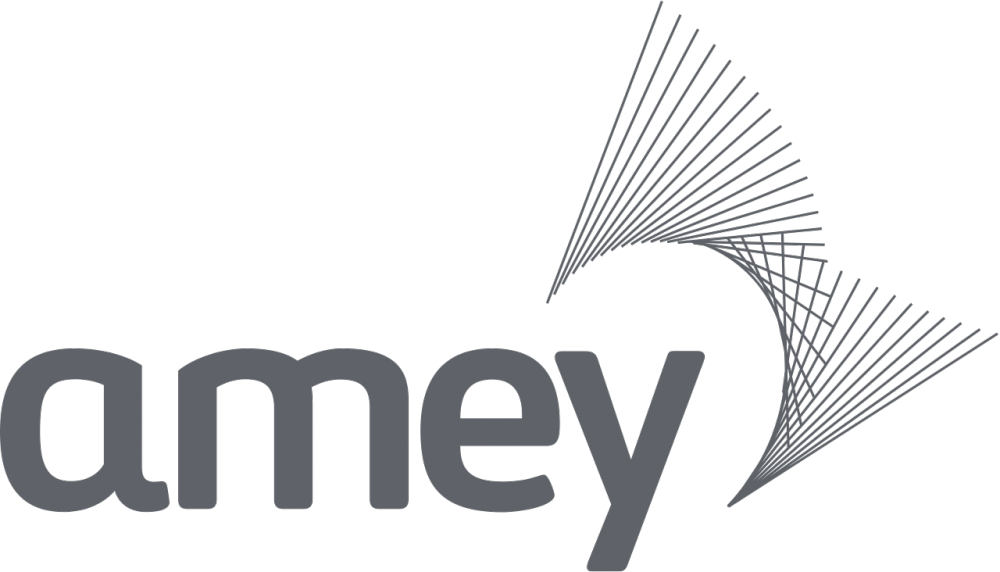Developing Amey's Future Leaders.
Amey plc, previously known as Amey Ltd and Amey Roadstone Construction, is a United Kingdom based infrastructure support service provider.
Amey works for the public and regulated sectors in the United Kingdom, selling services including highways and rail management and maintenance, facilities management, waste collection and treatment provision of utilities services as well as consultancy services. Most of Amey’s business is based in the United Kingdom; however it also operates in America, Australia and Qatar. Amey is involved in consultancy in the civil engineering industry, with a wide range of design and asset management services offered.

Step 1
Investigation
Innovation Central were approached by Amey to work in partnership to create a leadership development programme that would support the development of their future strategic leaders, whilst simultaneously evidencing tangible ROI back into the business.
To meet the client’s requirements, Innovation Central spent time across the business to support the identification of a range of fair and equitable ROI indicators that could be attributed back to the development interventions. In addition, this time enabled us to understand the current cultural state and organisational challenges, providing a framework against which the design of the programme would be produced.
Line Manager’s across multiple divisions were engaged, along with Amey’s internal learning team, providing key insight into their expectations and requirements of their leaders of tomorrow. Bag carrying exercises were undertaken on varied PFI contracts, enabling us to understand the language used and reality of day-to-day interactions for many of the delegates.
The key messages emanating from the business focussed on developing delegates ownership and accountability for decision making, understanding the key behaviours and responsibilities that drive effective leadership, whilst developing their underpinning commercial and customer awareness. Similarly, there was a drive from the business that each delegate should effectively ‘pay for their seat’ on the programme and that the development should afford a recognised qualification on completion.
Step 2
Creation
Based on the insights gained from the initial diagnostic interactions, Innovation Central noted a behavioural and operational ROI measure to be attached to each delegate. In conjunction with this, Innovation Central proposed charging the client 80% of the costs of the programme upfront, with the final 20% due on evidence that the behavioural and operational ROI measures had been successfully delivered by each delegate. The ‘resultancy’ approach adopted, highlighted our commitment to the programme and our desire to deliver the outcomes the client required.
Delegates were required to undertake a 360° assessment against a set of behavioural indicators prior to and following the programme. It was agreed that an equitable measure of successful behavioural change was an increase in the frequency of a minimum of 50% of the positive behavioural measures reviewed by the 360° assessment.
To support the operational measure and to address the requirement to provide an accredited qualification, an Institute of Leadership and Management (ILM) level 5 Certificate was proposed. Given their applied learning focus, the assessed modules required to achieve the qualification would provide an element of the evidence towards an operational ROI measure. The ILM units that formed the programme were:
- Becoming an effective leader
- Leading innovation & change
- Managing Improvements
To further emphasise the operational ROI measures and to enable delegates to ‘pay for their seat’, it was agreed that the ‘Leading Innovation & Change’ unit would be amended to identify a clearly defined efficiency saving/revenue generator of £5k per delegate. This requirement underpinned the delegates’ project choice and dictated a bottom-line return on the programme. The additional measure was included in the ILM mark sheet and was an internal requirement for passing the module.
"Over £250k of revenue generation or efficiency saving activity from the initial cohort"
Step 3
Implementation
Prior to the delivery of the initial development session, each delegate undertook a 360° assessment, to gain a benchmark picture of their current frequency of displayed leadership behaviours against an academically validated model (Full Range Leadership, Bass & Avolio, 1991). This was professionally debriefed to ensure focus on the development opportunities identified.
The structure of the delivery focussed on providing delegates with adequate time to apply their learning from each module back in the workplace. Following completion of each module, delegates received details of their required ILM assessed unit for completion. A ‘mid-term’ feedback session was built into the plan to allow delegates to submit a ‘strawman’ framework of their assignment to an Innovation Central coach. This supported the delegates’ application of their learning, along with maintaining their commitment, focus and sense of direction towards their personal development.
A final 360° assessment was provided to each delegate, 6-9 months following the final face-to-face intervention. As before, this was professionally debriefed, celebrating the positive behavioural changes identified and ensuring the delegates’ commitment to continued ownership and development as leaders.
"64 delegates, over 4 cohorts have taken part in the programme to date"
Step 4
Consolidation
The structure of the delivery was heavily focussed on supporting the delegates in applying their learning back in the workplace. Learning is situated in practice (Lave & Wagner, 1991) therefore, it was crucial to allow delegates the time and space to develop their leadership approach actually on the job.
The initial requirement for delegates to ‘pay for their seat’ on the programme was delivered beyond expectations. The outcome of the amend to the ‘Leading Innovation and Change’ unit, facilitated the identification of over £250,000 of revenue or efficiency savings across the business – from one cohort.
The behavioural measure applied to each delegate was also successfully delivered, evidenced against an academically validated mode and over a timeframe to support the view that the change in behaviours were embedded and not short-lived.
Finally, over 85% of delegates have successfully completed the qualification and have received their accreditation from the ILM.
"Assignment results over 90%; evidencing applied learning from the programme"